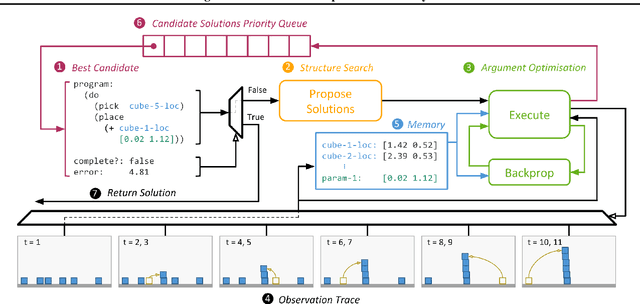Using Program Induction to Interpret Transition System Dynamics
Paper and Code
Jul 26, 2017


Explaining and reasoning about processes which underlie observed black-box phenomena enables the discovery of causal mechanisms, derivation of suitable abstract representations and the formulation of more robust predictions. We propose to learn high level functional programs in order to represent abstract models which capture the invariant structure in the observed data. We introduce the $\pi$-machine (program-induction machine) -- an architecture able to induce interpretable LISP-like programs from observed data traces. We propose an optimisation procedure for program learning based on backpropagation, gradient descent and A* search. We apply the proposed method to two problems: system identification of dynamical systems and explaining the behaviour of a DQN agent. Our results show that the $\pi$-machine can efficiently induce interpretable programs from individual data traces.
 Add to Chrome
Add to Chrome Add to Firefox
Add to Firefox Add to Edge
Add to Edge